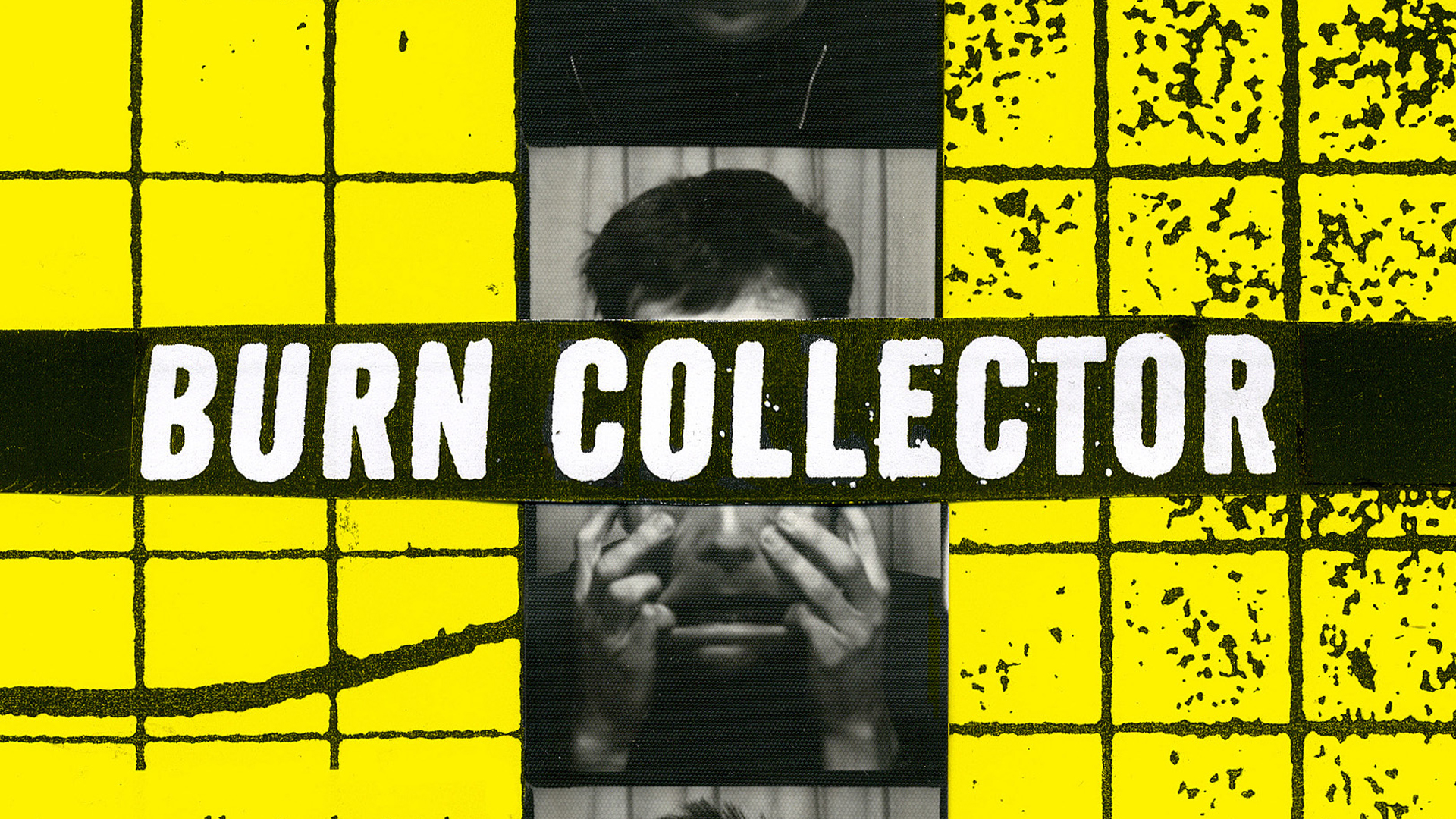by Simon Czerwinskyi
Political Media Review
January 1, 2011
The fractured nature of the zine dictates it be ingested in small doses. Due to most zine’s thematic schizophrenia, this is the case the majority of the time. However, when collected, some zines are able to communicate an overarching theme. The recent reprint of Al Burian’s Burn Collector (which collects issues 1-9, and exists as a depressing postcard from the 1990s) transcends the usual scattered fare of the punk zine, and read all at once, is a solid block of wallowing introspection. Burian weaves an intricate labyrinth of belly-aching, existential complaints, wry observation, and general punk pathos over the course of the nine issues collected here. And I felt a little wrung out after trudging through the contents of Al’s brain.
Burian was ahead of the curve in regards to hardcore burnout. Punk in the ‘90s was filled with many divergent musical genres, radical politics of all stripes, and the feeling that perhaps it would all brim over into something sustainable and useful.
Such was not the case and Burian accurately—and painfully—articulates the malaise and disillusionment many punkers felt after the radical scene dried up; as a result, a good number of hardcore acolytes went on to wedge themselves into the straight world. The marked difference here is that Burian articulated all these feelings and regrets before the bottom fell out. In that, there is a historical importance (and personal relevance) to any stalwart of 90’s hardcore and punk. If you came out the other end feeling jaded and deflated, the book will definitely strike a chord.
That being said, music and “The Scene” are rarely addressed in Burn Collector. Burian burrows deep into his personal history, various rag-tag living situations, and failed relationships. While the meat of it doesn’t involve specific reference to punk, the approach and attitude most certainly spring from a personality bred by punk. There is much sarcasm to be had here, and there are many passages of Burian dissecting seemingly irrelevant minutiae (a common punk rock pastime).
The issues in which Burian escapes himself, such as an interesting piece about his visit to a recently re-unified Berlin, are certainly the best. Here, Burian examines a burgeoning youth culture of scrappy proportions. He witnesses ad-hoc dance clubs, ramshackle speak easies, and kids generally excited about their new-found freedom. And the final piece in the book, detailing Burian’s interaction with former President Ronald Reagan, is as punk as it is entertaining.
The thematic consistency (Al feels bad about existence) is the main failing point here. The redundancy of a morose Burian is hard to take in such a concentrated form. Spread out amongst issues and read every couple months, Burn Collector might retain its freshness and poignancy. However, as a collection, it just weighs too much. The terminally beleaguered Burian simply wears the reader out. The subject matter changes, but the bleak perspective stays the same, and any potential a new topic might have of straying from the repetitive path is smothered by Al’s depressive mental heft. Burian is a fine writer who is limited by his myopically grim vision. As a whole, Burn Collector is impressive in its single-mindedness—a single-mindedness that, unfortunately, leaves little breathing room or variety for the reader.






